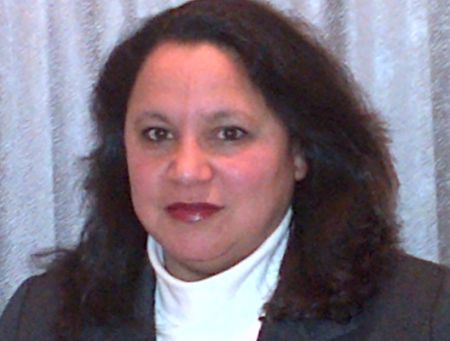Roslyn Chambers was a mature student taking an intensive class on residential school survivors when she met students who had never heard about this dark legacy of colonial Canadian history.
“I was shocked that people didn't know, so I wanted to start a discussion group,” she said.
As a black law student who has worked with vulnerable communities and recently learned about her Métis heritage, Chambers says she feels her individual role in reconciliation efforts is to help people understand what happened.
The Truth and Reconciliation Commission found that at least 4,000 of the 150,000 First Nations children who passed through the residential school system died while attending school. These children were removed from their families, deprived of their ancestral languages, and were frequently subject to physical and sexual abuse.
Chambers has organized talking circles on the subject at the Dalhousie law school since October 2013; the most recent discussion in March spotlighted the current plight of aboriginal children in out-of-home care.
Of the roughly 30,000 children aged 14 and under in Canada who were in foster care, nearly half were Aboriginal children. In 2011, 14,225 or 3.6 per cent of Aboriginal children were foster children, compared with 0.3 per cent of non-Aboriginal children (Statistics Canada, 2011 National Household Survey).
Studies attribute the disproportionate number of Aboriginal children in foster care to the fact that at least a generation of school survivors are less able to parent as a result of their institutionalization.
Shelley Hounsell-Gray, who works in the Dartmouth family office for legal aid and provides counsel for parents in child protection matters, participated in the March talking circle.
She cited children who have moved several times in the early stages of their life, affecting their development by impeding their ability to form attachment to a caregiver. One such example is the story of the aboriginal girl who was moved 10 times in the first 17 years of her life.
“This is not uncommon,” says Hounsell-Gray. There is a disconnect among First Nations' governance, provincial, and local agencies when coordinating services for these children, she added.
There is no child advocate in Nova Scotia, like the office of the child advocate in Ontario, for instance. There is real concern among social workers and advocates that children raised in care are more likely to struggle in adulthood.
Nova Scotia could be doing better.
Hounsell-Gray points to the “Signs of Safety” risk assessment model being used in Alberta and Ontario. The program offers new hope for children to stay with their families by doing “assessment of risk.” There is no record of deaths in parental care or kinship placements done by this program.
The model, a more holistic approach akin to traditional perspectives on child rearing, originates in Australia. In New Zealand, a Maori approach promotes family, kinship, and community rather than the patriarchal approach of agencies or government agents who say “we're going to pluck you out, and we know best.”
A parent who is genuinely concerned about their parenting should not be stigmatized, she says. “If they want to do better for their child, we should support them.”
There is a “learned helplessness,” that happens among parents or families in more vulnerable populations, says Hounsell-Gray. She encourages Aboriginal leaders to take more initiative on the crisis in their communities.
Community-based resources for parenting in Nova Scotia are becoming more and more culturally appropriate. (See below for resources.) Materials available in Mi'kmaq, such as a video in Mi'kmaq describing child protection proceedings are being developed in Eskasoni First Nation in Cape Breton.
“Now that we've moved to big cities, we've lost the community-based awareness and support regarding child rearing.” She tips her hat to social workers of all stripes – they are not the problem, they are simply overworked, she says.
“In Ontario right now, if a child comes into care, they're recognizing that children need to remain connected with their family – a worker looks into kin and kith to see if there's an appropriate and available caregiver to retain continuity in family,” says Hounsell-Gray. This practise is not mandatory in Nova Scotia.
Resources for parents include:
Dartmouth Family Resources Centre
http://www.dartmouthfamilycentre.ca/
(902) 464-8234
Veith House
(902) 453-4320
Family S.O.S.
(902) 455-5515
Memory Lane Family Place (Lower Sackville)
http://www.memorylanefamilyplace.com/
(902) 864-6363
Capital Health Nova Scotia
Also consult:
Mi'kmaw Family & Children's Services Of Nova Scotia (Eskasoni)
(902) 379-2433
Mi'kmaq Native Friendship Centre
(902) 420-1576



